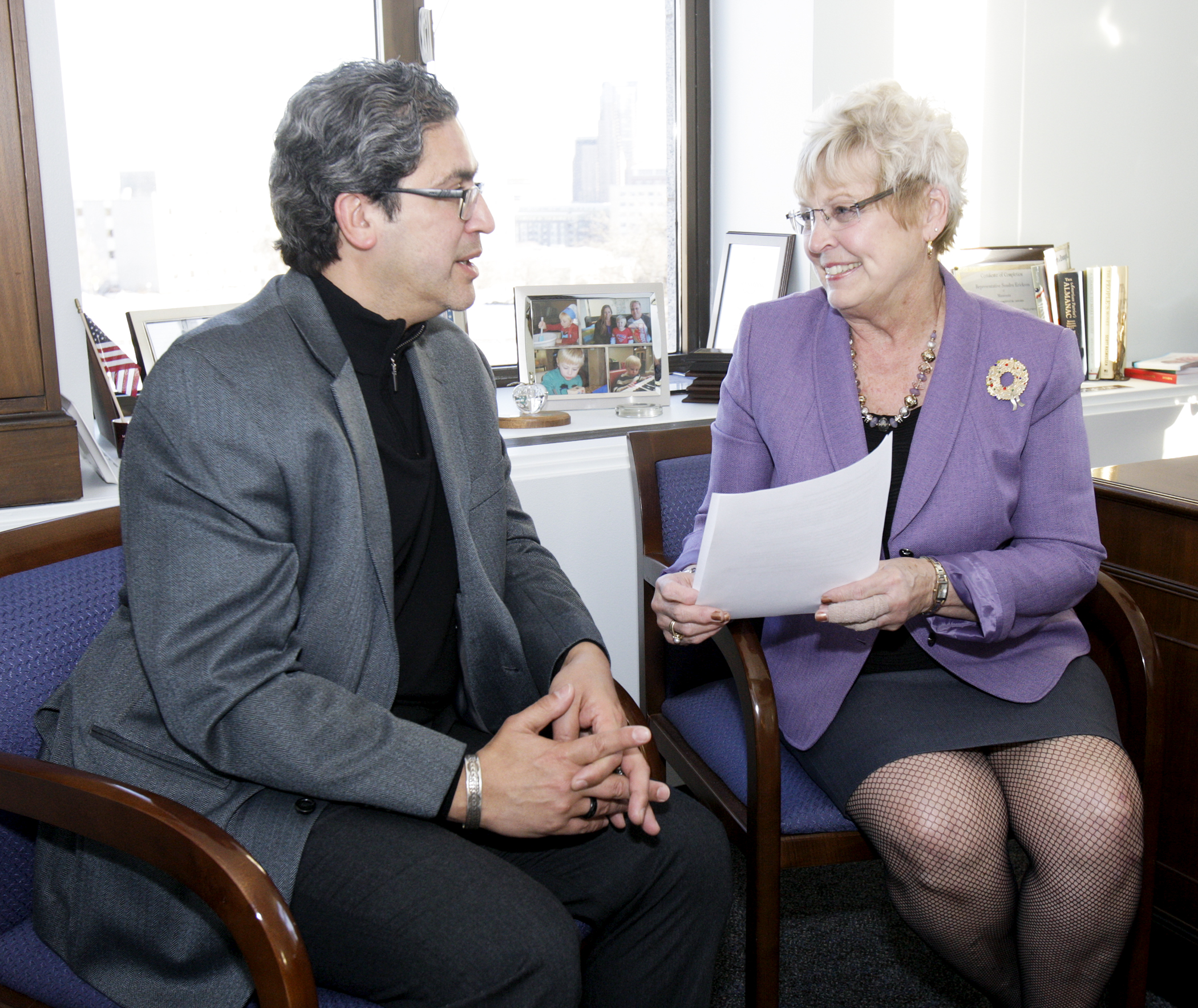House ed leaders play ‘Ping-Pong' with a spirit of civility

Representatives Sondra Erickson and Carlos Mariani sit on opposite sides of the political aisle. They represent districts with vastly different demographic constituencies.
And although they have never actually engaged one another in a game of table tennis, if they did, it’s likely their respective paddles would be stored in the meeting room for the House Education Innovation Policy Committee.
“Ping-Pong” is how Mariani (DFL-St. Paul) cordially terms the leadership roles that he and Erickson (R-Princeton) have played with each other on K-12 education policy legislation for the better part of the last decade.
“We bang heads, that’s for sure,” Mariani said. “But I have to say that our interactions with each other have been pretty respectful. Part of that comes with the passion that each of us brings to the topic. But it also comes with a lot of time spent working with each other on education.”
With the exception of the 2009-10 biennium, when Erickson was not re-elected, the pair have served together on education policy committees since 1999. Since 2007, one has been the committee chair and the other as minority party lead. That, in itself, is rare among any two members of opposing parties currently serving in the House.
Such continuity has served as a springboard for the pair to seek out common ground, said Erickson, who currently chairs the House Education Innovation Policy Committee.
“I think we have come to learn about each other’s personal and political philosophies very well,” said Erickson, who also served as chair in 2011-2012. “And I think we do share some common beliefs in what’s needed to ensure our children are getting a quality education.”
That’s not to say that the pair is hesitant to mince words when they dialogue in the public forum, Mariani said. But he added civility is never lacking.
“As minority lead, (Rep. Erickson) was never there to derail the process,” he said. “Her contribution was about articulating her viewpoints, or trying to find ways to improve legislation. Honest disagreements often lead to compromise. That’s why I think we appreciate each other’s efforts, regardless of which of us is chair.”
Common ground sought
A retired high school English teacher, Erickson pointed their shared concern that the federal government tends to overreach on several education issues that are better addressed at the state and school district levels.
One of those issues is anticipated reform to the federal “No Child Left Behind” law that mandates standardized testing for students to demonstrate learning proficiency.
“I think we would both very much like to move in a reform direction when it comes to (standardized) testing,” Erickson said. “We might have different approaches on how to do that, but we are both concerned about the burden standardized testing places on our teachers who deliver the content and teach the skills.”
The committee is also expected to take up HF2, which would allow school districts greater flexibility in using annual teacher evaluations along with seniority as a measuring stick if/when decisions are made to cut teaching staff. Mariani, minority lead for the House Education Innovation Policy Committee, said both are issues that have room for bipartisan support.
“If you’re playing a ‘long game,’ especially on K-12 issues, it’s really important to minimize partisanship where you can,” said Mariani.
Related Articles
Search Session Daily
Advanced Search OptionsPriority Dailies
Ways and Means Committee OKs proposed $512 million supplemental budget on party-line vote
By Mike Cook Meeting more needs or fiscal irresponsibility is one way to sum up the differences among the two parties on a supplemental spending package a year after a $72 billion state budg...
Meeting more needs or fiscal irresponsibility is one way to sum up the differences among the two parties on a supplemental spending package a year after a $72 billion state budg...
Minnesota’s projected budget surplus balloons to $3.7 billion, but fiscal pressure still looms
By Rob Hubbard Just as Minnesota has experienced a warmer winter than usual, so has the state’s budget outlook warmed over the past few months.
On Thursday, Minnesota Management and Budget...
Just as Minnesota has experienced a warmer winter than usual, so has the state’s budget outlook warmed over the past few months.
On Thursday, Minnesota Management and Budget...